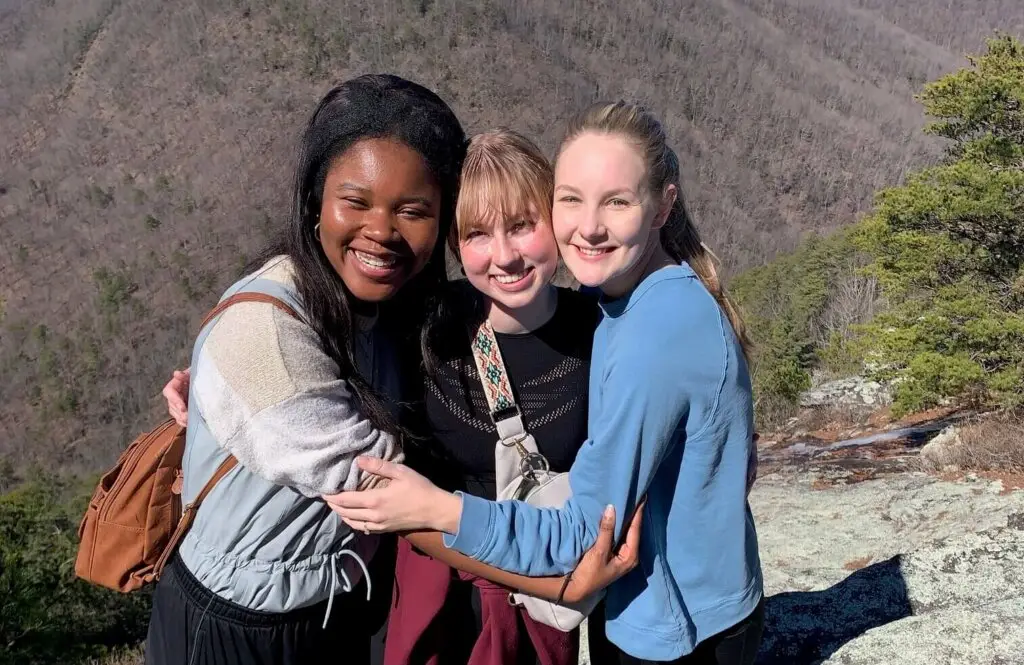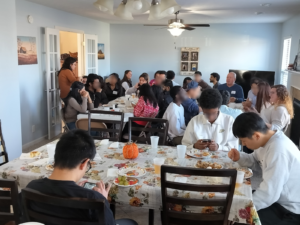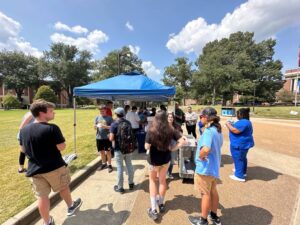A popular idea in college ministry is for a focus on commissioning their seniors. I think this is a great tradition which has many benefits. It encourages your freshman, juniors, and seniors to remain plugged into your ministry. It creates a culture of expected going and sending. It creates a celebratory culture, where you honor those who have served and look forward to how God will use them and others.
I think it is a great idea to commission students as they graduate, but I think it can also be a good idea to commission students even earlier. I am currently reading the book The Intentional Father by Jon Tyson. Jon lays out the importance of “rites of passage” or “marking moments” in a young man’s life. Important traditions can be handed down from generation to generation. Traditions can be used to cast vision and speak truth into a young person’s life. As I read about the importance of these “marking moments,” I thought of how impactful these moments have been in my own life and how impactful they can be for our students.
Some traditions are good and others are bad. Some traditions are very meaningful and others not as much. Several things that have become traditions at our ministry are “Silent Football,” “DICE,” and “Cookie Logs” – games and food. They are fun and silly but the students are very excited to introduce these to any new student who arrives at our ministry.
There are the fun traditions that every college has, but what are the ones that your students will later define as “marking moments?” What are the key moments for your ministry which students will continue to talk about for generations to come? Maybe it is a mission trip or something special you do as a group for a fall conference. I have found four key components that make up a “marking moment.”
Keys of great “Marking Moments”
1. They are meaningful.
“Marking Moments” are meaningful. I can remember attending a retreat where all of my friends and loved ones wrote letters to me, men prayed for me, and we walked through a tunnel of people we knew singing hymns over us. (I promise it wasn’t a cult!) At the time, I was overwhelmed by the love poured out by my friends and family. I believe I had somewhere close to fifty cards from people telling me how much they loved me. This was all a part of the larger goal to point to the even greater love Christ had for me.
What do you want your “Marking Moments” to symbolize and teach your students?
2. They are memorable.
One key “Marking Moment” for me was a ministry in which the upperclassmen washed the feet of the freshman to symbolize how Christ, as the ultimate leader, came not to be served but to serve. I can still remember feeling awkward having these men, who I deeply admired, to humble themselves before me, an idiotic freshman at the time. I had never experienced anything like that before. Sure people had served me and loved me before, but this was different. Because it was so different, it was memorable.
What sets your “Marking Moments” apart? Is there a gift or an activity that can be used to drive home what you hope to teach?
3.) They are multiplying.
If the “Marking Moment” is both meaningful and memorable it will multiply. The first generation who experiences it cannot wait to replicate it with the next generation. Many fraternities have initiation rights which are meant to be meaningful and bring brothers close together (I’m in no way referencing hazing, but solid rights of passage). For example, the pledges of the fraternity I was in would carve their names in the tunnels underneath the campus. I remember being a big-brother for the first time and looking forward to taking my little to walk through this right of passage for our fraternity. So too will your students look forward to and want to stick around for walking through these moments with your incoming students.
What “Marking Moment” would you want replicated throughout your ministry?
4.) They are missional
Finally, any “Marking Moment” for your ministry should seek to advance the mission you are seeking to accomplish. One key goal for our ministry is that students would find community. Traditions build community. Another key goal is that students would follow after Christ. Any meaningful tradition we create we want to point back to Jesus. “Marking Moments” for a ministry can be a great way to show students how they fit into the overall mission of the ministry.
Here are some examples:
- A sunrise hike that you do on a men’s or women’s retreat which culminates in a special sermon or vision for the ministry given by a key leader.
- A gift given to the freshmen who have decided to serve on your leadership team, such as a journal with passages of scripture written by their discipler.
- A special time of prayer and laying on of hands over the rising sophomores and a vision of what it means to be a leader and to serve.
- A special place of worship such as a cross at a fall retreat.
- A bonfire in which students cast the sins with which they are struggling.
How can you set the mission in front of your students through “Marking Moment” traditions?
I mentioned at the beginning that our seniors were commissioned for life through our ministries, but what would it look like to have our students have some of these opportunities to feel commissioned through the institution of traditions. I have felt very loved and challenged through the words of leaders in my life, but some of the most memorable moments were the traditions in various ministries that SHOWED me they loved me or believed in me in a very intentional way.
I once heard it said “If you want someone to know the truth, tell them the truth. If you want them to love the truth, tell them a story.”
What traditions can we set in place that will convey a higher calling where students not only know the truth, but love the truth?
A final note: There is a certain level of sanctity in traditions– not in secrecy but in solitude. Some of my best moments were not captured on instagram for the world to see, but were shared by only me and a few others to cherish. Just a thought.
Daniel Johnson serves as the Lexington Regional Campus Minister and the Campus Minister at the University of Kentucky. You can follow the ministry on Instagram @ukbcm.






